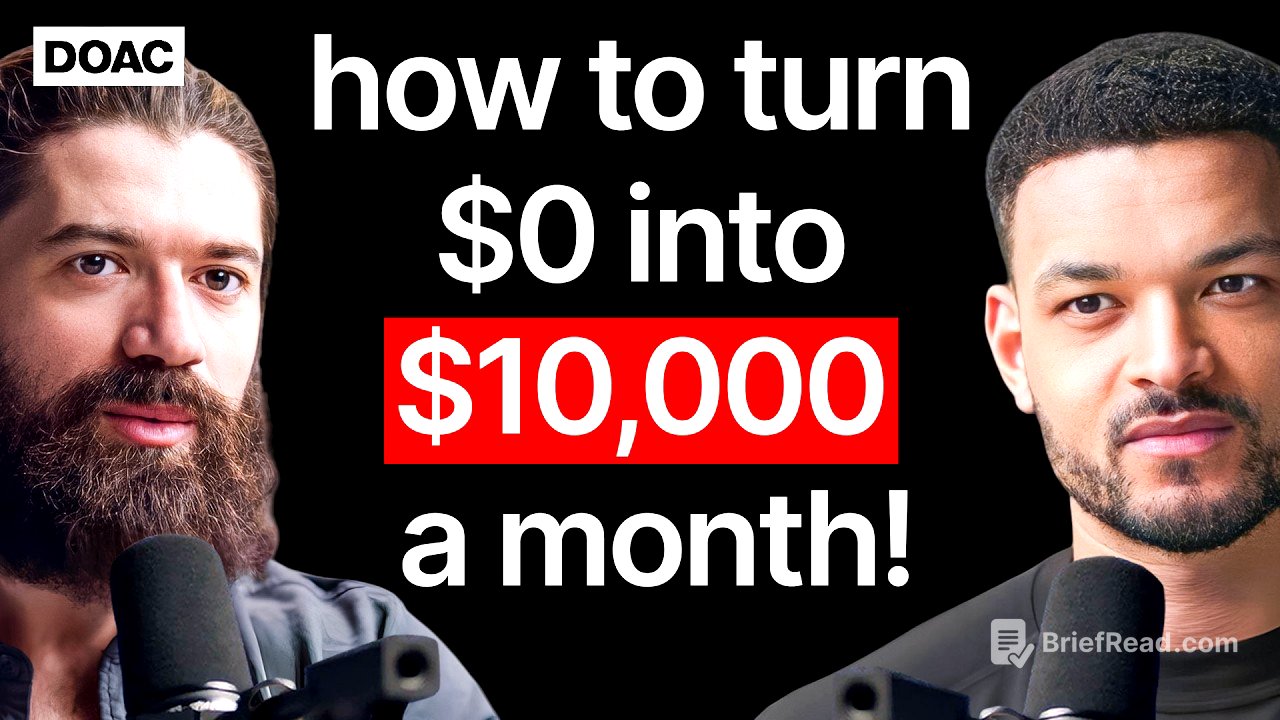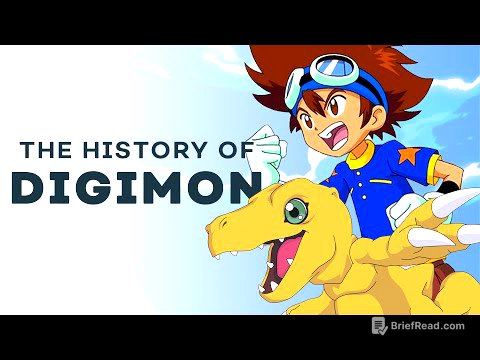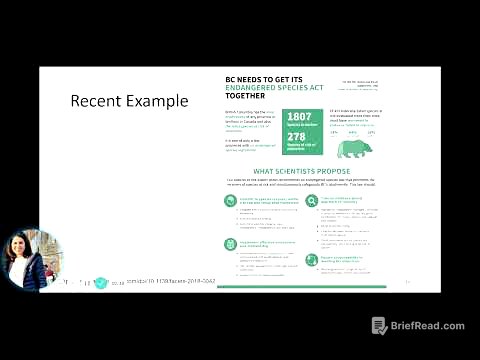TLDR;
Alex Hormozi shares his insights on entrepreneurship, business strategy, and personal growth. He emphasizes the importance of courage, self-awareness, and continuous learning. Hormozi also touches on key aspects such as hiring, customer success, and maintaining a balance between work and personal life.
- Overcoming fear and embracing failure are crucial for entrepreneurial success.
- Focus on skill acquisition and continuous experimentation to stay ahead in a competitive market.
- Building a strong team and fostering a positive culture are essential for long-term growth.
Intro [0:00]
Alex Hormozi is introduced as a master of business strategy, known for transforming companies into multi-million dollar enterprises. The video promises to share behaviors and actions that increase the likelihood of success for entrepreneurs at any stage. It highlights the necessity for entrepreneurs to make difficult choices, embrace failure, and overcome fear to unlock new possibilities.
What Would You Say to the Millions of Entrepreneurs That Follow You? [2:19]
Alex Hormozi addresses his audience, stating that his content and conversations are designed to assist entrepreneurs in scaling their businesses, whether they are starting from scratch or aiming to grow from $1 million to $10 million, or even from $10 million to $100 million. He emphasizes that the frameworks he provides are applicable across various stages of business and can help navigate strategic decisions to maximize returns on time investment.
What Entrepreneurs Really Need [3:23]
Entrepreneurs often seek immediate tactics to start a business, but what they truly need is the courage to be wrong and face potential shame from failing in front of those whose opinions matter to them. Alex shares his personal struggles in overcoming fear and emphasizes that the difficulty in breaking free from mental barriers makes one's story more compelling and relatable. He highlights the importance of acknowledging and addressing the emotional challenges in entrepreneurship.
Is There a Framework for Knowing When to Quit? [12:09]
The mathematical approach to quitting involves having three to six months of personal savings and a side business generating income matching the current job's income for three to six months. However, the real reasons for considering quitting are when the work is hard and doesn't move one toward a meaningful goal. Alex encourages thinking about the alternate path and considering whether the current path guarantees an unwanted outcome, making a chance at something good worth the risk.
Fear vs. Logic: How to Think Rationally [16:10]
Fear exists in the vague, not in the specific. By detailing the worst-case scenario, one can disengage the amygdala and engage the prefrontal cortex for logical decision-making. Alex shares his emotional statement, "His dream has to die for mine to live," alongside the logical downside risk assessment, which includes having a story and the ability to get the job back.
Your Decisions Are Driven by Self-Awareness [19:13]
When thinking about what to pursue after leaving a job, self-awareness is crucial. Alex references Andrew Wilkinson's tweet about entrepreneurs claiming to have the winning lottery ticket. He explains that foundational truths of business exist, and one must apply them to the current conditions. The goal is to maximize the return on time, the primary currency, by attracting attention, converting it, and delivering value, all with as much leverage as possible.
What to Do When You Quit Your Job: The 4 P's [23:41]
Business ideas typically come from one of three sources: a pain you're experiencing, a past profession, or a passion. Alex emphasizes that you only need one of these to start a business. He also highlights the value of skills learned in the workforce, as they are already proven to be economically viable.
Pain as a Driver [24:47]
Pain can be a significant driver for business ideas because deep knowledge of the prospect is paramount for creating exceptional products. This knowledge can come from extensive research or from being the prospect. Alex shares his personal experience with nasal breathing problems, highlighting how his deep understanding of the issue allows him to formulate better hypotheses for solutions.
Mercenaries and Missionaries in Business [27:35]
Alex references a framework discussing missionaries and mercenaries, noting that missionaries, who viscerally experience a problem and want to solve it for others, often make the most money. He shares a personal story about his breathing problems since eighth grade, illustrating the deep understanding and passion that drive missionary entrepreneurs.
Just One P Will Make You Succeed! [32:36]
Ideally, a business idea combines pain, profession, and passion, but you only need one of the three to succeed. Alex emphasizes that even a simple passion, like model cars, can be the foundation for various business opportunities. He also stresses the importance of being clear on your goals, whether it's becoming the richest person in the world or simply making enough money to pursue your passion.
What's the Cheat Code to Win at the Game of Attention? [35:53]
In 2025, the cheat code to win at the attention game is to be yourself. Alex advises against trying to out-science the science people or imitating others. Instead, he suggests leaning into your unique life experiences and personal flavor of media. He emphasizes that while most products and services are commoditized, your unique brand premium can attract customers who want to buy from you.
The Winning Strategy for 2025 [39:39]
The winning strategy for 2025 is to have the courage to be yourself. Alex shares a conversation with his wife, who advised him to never dilute himself, as there are many more people who need that message than those who hate it. He explains that everything in you wants to avoid being yourself, but it is the most high-value approach.
How Important Are People in the Business Journey? [49:13]
People are very important in building and starting a business. Alex believes that the potential of an organization is directly correlated with the aggregate intellectual horsepower of everyone within it. He emphasizes that as a business grows, more expertise is required, and it takes many horses to take a chariot to the moon.
First-Time Founders Need to Know This About Recruiting [56:52]
First-time founders often need to learn the importance of hiring themselves. The simplest way to attract the right people is to do the job yourself first. Alex outlines the 3Ds: document, demonstrate, and duplicate. Document everything you do to successfully do the job, demonstrate the checklist in front of the person you're trying to bring on, and then have them duplicate the checklist in front of you.
A-Players Hire A-Players [59:14]
A-players hire A-players, while C-players hire F-players. As you go up in the organization with hires, the risk and reward increase. Alex shares analogies to explain the importance of removing ineffective or misaligned individuals from the organization.
The Ability to Have Hard Conversations Sooner [1:01:46]
The ability to have hard conversations sooner is a key quality of successful founders. Alex defines culture as the rules that govern reinforcement within an organization, including what is rewarded and punished. He emphasizes that culture trumps strategy and that the unspoken rules are just as important as the spoken ones.
Be Kind, Not Nice, as a Manager [1:09:36]
It's important to be kind, not nice, as a manager. Alex explains that you're being unkind to someone by not maximizing their likelihood of success. He distinguishes between criticism, which is a discrepancy between actual and desired, and insult, which is the judgment associated with the discrepancy.
How to Not F*ck Up in the Hiring Process [1:15:47]
To avoid messing up the hiring process, especially early on, assume you are bad at hiring and decentralize the decision-making. Alex suggests creating an interview process where multiple people, including top performers, are involved. He also emphasizes the importance of gathering information and using the interview process as a learning opportunity.
How Do You Know They're Not BSing You in the Interview? [1:23:46]
To determine if someone is being truthful in an interview, ask them to explain what they do in simple terms. If they have expertise, they should be able to explain it to a child. If they confuse you, it means they don't understand it or are doing it purposefully, neither of which is good.
How to Hire Great People If You Don't Have the Money [1:24:49]
To hire great people when you don't have much money, ask them what it would take to sell them on the opportunity. Alex emphasizes that this assumes they are going to come and opens the door for negotiation and creative compensation solutions.
The Pros and Cons of Experienced vs. Less Experienced Employees [1:28:03]
Alex shares his fairly strong opinions on the topic, advocating for a barbell strategy where you have people on either end and very little in the middle. He loves young, hungry people who are here for growth and those at the back end of their careers who love the work and aren't obsessed with titles or career paths.
The 4 R's [1:30:05]
For each customer, Alex looks for four milestones, known as the four Rs: retain them immediately, get them to review the product, get them to refer somebody, and resell to them. He tries to reverse engineer what activities increase the likelihood of each of these four Rs occurring.
How to Be Prepared for the Rollercoaster of Building a Business [1:33:15]
Entrepreneurs must be psychologically prepared for the ups and downs of building a business. Alex introduces the entrepreneur life cycle, which includes stages of uninformed optimism, informed pessimism, crisis of meaning, and informed optimism. He emphasizes that most people get stuck in a loop of uninformed optimism and informed pessimism, constantly chasing the next shiny object.
What Successful Companies Do [1:55:42]
Successful companies have founders who stay focused on one thing for multiple decades. Alex measures focus by the quantity and quality of things that you say no to and defines commitment as the elimination of alternatives. He encourages entrepreneurs to eliminate all alternatives and structure their lives to make it difficult to pursue other options.
How to Double Your Business Growth [1:58:05]
At the crisis of meaning, entrepreneurs often take on something else instead of quitting, which prevents them from achieving escape velocity. Alex emphasizes that any business can work, but none will work unless you pick only one. He also highlights the importance of understanding the difference between being an owner and being the CEO.
How to Help a Founder Who's About to Quit—They Can't Take It Anymore [2:10:52]
Founders often reach a point where they can't take it anymore and are thinking of quitting. Alex emphasizes that the game of entrepreneurship is to be successful, not to be right. He encourages founders to be willing to change their hypothesis and adapt to what customers are telling them.
The Old Innovators' Dilemma and How to Adapt [2:16:47]
Success can trap businesses in the past, leading to the innovator's dilemma. Alex references Google's 70/20/10 rule, where 70% of resources are allocated to the core business, 20% to adjacent businesses, and 10% to moonshots. He also advises against taking the stars from the core business and pushing them onto new ventures.
Your Rate of Experimentation Has to Be Higher Than Your Competitors! [2:25:53]
Businesses should not try to win on the game of creativity but on their rate of experimentation. Alex emphasizes the importance of conducting more experiments and creating a system to find the right answer. He also shares a quick hack for brick-and-mortar businesses to test new markets by running their best promotion in multiple locations and opening in the one with the lowest lead cost.
Do Mentors Matter in Our Journey? [2:29:10]
Mentors are not required to win, but certain behaviors and actions will increase the likelihood of success. Alex emphasizes the importance of learning from people ahead of you and modeling their behavior. He also shares his consulting process for rapid learning, which involves finding five experts, taking notes, recategorizing the information, and generating inferences.
Parrots vs. Practitioners: The Best Way to Learn [2:37:25]
The best way to learn is to be a practitioner, not a parrot. Alex distinguishes between declarative knowledge (knowing about something) and procedural knowledge (knowing how to do something). He emphasizes that you learn more about selling from your first hundred sales calls than from reading a hundred books on sales.
The Founder Mode [2:42:23]
The founder always has special powers in the company because they know what built it. Alex explains that if you cannot explain why you believe what you believe, it's not your belief, it's someone else's. He also shares a story about how he and his team developed a framework for creating successful YouTube videos through continuous experimentation and analysis.
Founders and the Competitors Around Them [2:46:51]
If you're a founder plagued by competition, remember that it's a requisite for success that people will copy you. By definition, if someone copies you, they are second. To lead, you must consistently derive the next step and innovate rather than just parroting what others are doing.
Work-Life Balance [2:49:14]
Alex shares his life thesis, which is that hard work is the goal, and he wants to die on things worth doing. He emphasizes that his love, happiness, and work have all unified into one. He also explains that he doesn't work on a 7-day calendar but works as much as he can until his rate of output drops, then takes a day off.
The Mantra That Helped Me [2:56:35]
Alex shares a mantra that helped him: "[ __ ] happiness." By continually chasing happiness, it always existed outside of him. By saying "[ __ ] happiness," he was able to focus on doing the things he wanted to do, and eventually, he found himself liking his life.
How to Drive Meaning from Your Life [3:03:43]
Alex shares a conversation with a friend who asked, "Why do you think that life needs to be meaningful?" This question made him realize that he had an unspoken demand of the universe that his life should be meaningful. He emphasizes the importance of absolute responsibility and focusing on what you can control.
What Is the Meaning of Life? [3:09:51]
Alex believes that the meaning of life is learning. He explains that the output of experience is learning, and we will learn regardless of whether we want to or not. The question is whether you are learning the things that you want.









